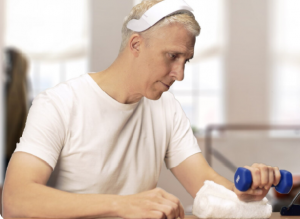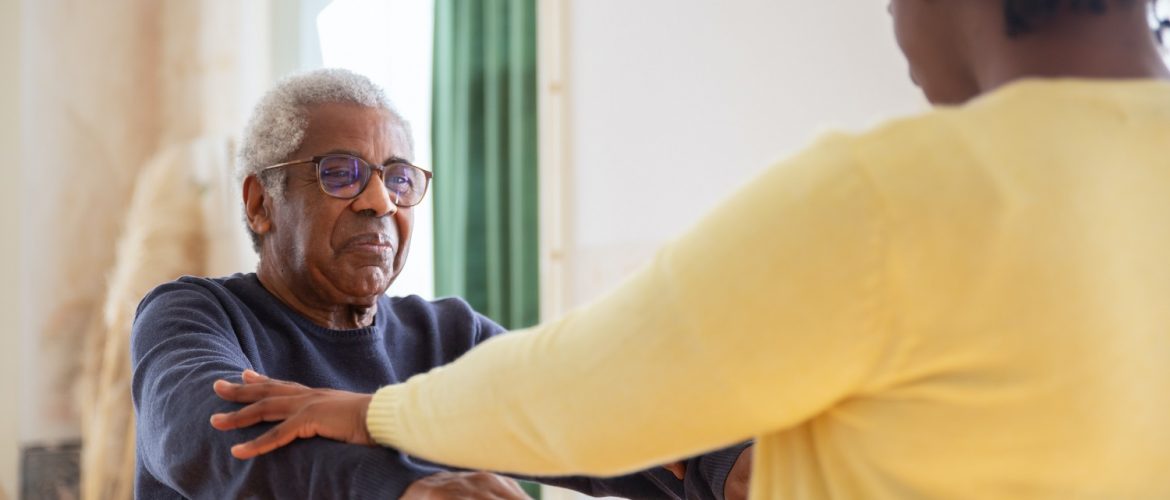According to a 2019 Heart and Stroke Foundation report, more than 62,000 strokes occur in Canada each year, with cases continuing to climb.[1] As life expectancy rises, people who experience strokes are living with the side effects – which often include disability and cognitive impairment – for longer periods of time. This is especially true for older adults. Without support, stroke survivors may feel discouraged and unmotivated to complete the journey to recovery once they return home from a rehabilitation clinic.
As a physiotherapist, Tony Ingram realized he could enhance the stroke recovery process if he had a better understanding of the brain’s response to therapy. However, this kind of data is not easily accessible to clinicians working in rehabilitation.

“In a neurological rehabilitation facility, all you can do is get people to complete exercises – you can’t tell what is happening in the brain while they are doing these things,” explains Ingram. “So, there’s a big disconnect between what we think we’re doing and what we know we’re doing.”
This realization started Ingram on a quest to develop technology that would measure the brain function of a stroke survivor while they were undergoing physiotherapy.
With this goal in mind, Ingram and his partners Chris Friesen and Mike Lawrence founded Halifax-based company Axem Neurotechnology. The company’s flagship product, Axem Home, aims to help patients track their recovery progress and increase their motivation, while also providing healthcare professionals with valuable data about the ways their clients’ brains are responding to therapy. This data is also useful for informing future treatment decisions and creating a more personalized plan for patients.
Stroke Rehabilitation at Your Fingertips
The Axem Home headset and app was also designed to make stroke recovery accessible for patients. The goal is to accurately measure brain activity in stroke survivors in a cost-effective way, without having to subject them to invasive testing.
The technology will be particularly helpful for people living in remote and rural areas by making it possible for them to complete their therapy from the comfort of their homes.

Axem home
With a functioning prototype now under their belt, Axem is poised for growth and commercialization with support from CABHI’s MC² Market Readiness program. Axem is currently part of the program’s latest cohort, which grants early-stage startups access to investments, buyers, subject matter experts, and international markets.
“CABHI has a really strong network of people that I can speak to and validate my ideas against,” shares Ingram. “Joining the MC² Market Readiness Program is helping answer a lot of questions for us around business development and attracting investors.”
Ingram believes his company has the capacity to expand beyond physical therapy. The technology used for Axem Home could one day be applied to cognitive therapy as well, which will be critical for supporting older adults who are more prone to cognitive decline after a stroke.
“The long-term vision for the technology is that it becomes a platform that you can build many products on,” says Ingram. As Axem draws nearer to commercialization, Ingram is excited to see his team’s solution empower stroke survivors with the tools needed for a strong and successful journey towards recovery and independence.
[1] https://www.heartandstroke.ca/-/media/pdf-files/canada/2019-report/heartandstrokereport2019.ashx


